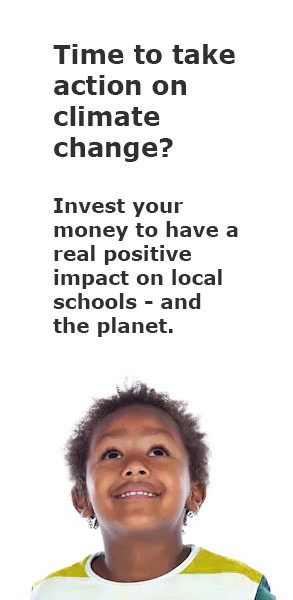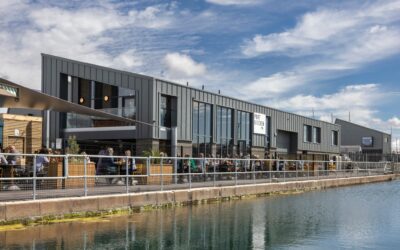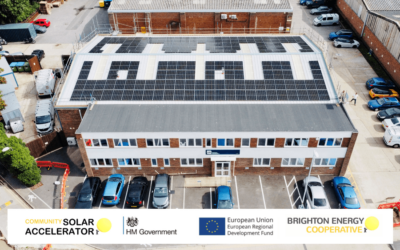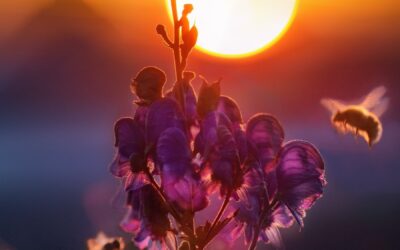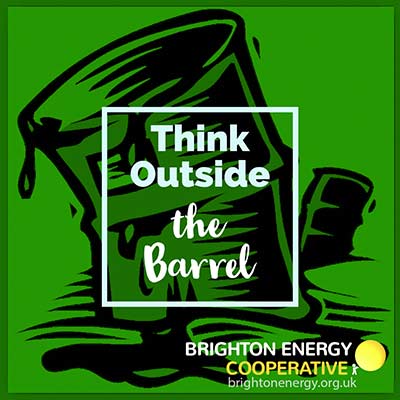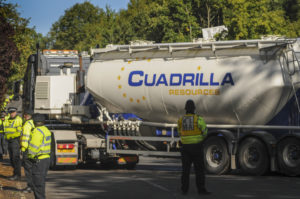July 9, 2019
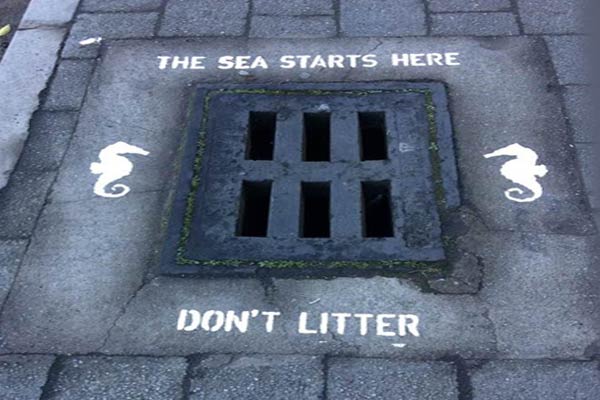
Brighton and the ‘Seaside’ go together like ‘fish and chips’.
Brighton & Hove people know they are so blessed to be living close to the ocean.
Most Brighton & Hove residents love the ocean! As well as all the fun and business the beach brings they also know, that when they gaze out to sea, it can sometimes helps them to relax – the vastness of the sea offers perspective, and its constancy can help them ‘de-stress’ . They know are lucky to live alongside her! Maybe it’s this that makes our city one of the most relaxed there is? The sea can also induce a feeling of awe, and if you close your eyes and listen to the sea, you could be in Brighton or Bermuda – it doesn’t seem to matter, the sea is one.
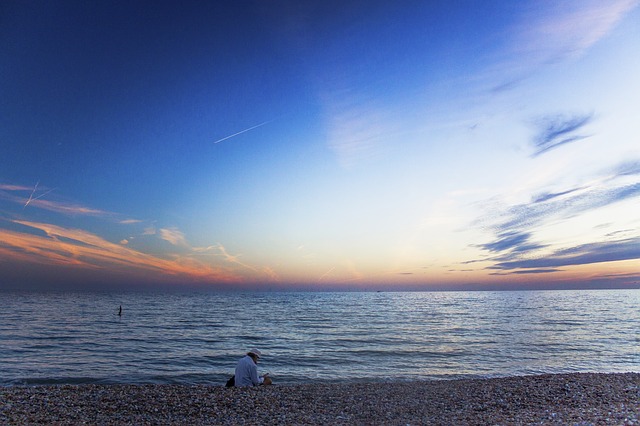
Brighton is one of the greenest cities in the U.K.
The people of Brighton often lead the way in environmental issues. Witness the success of our community energy driven campaign to put free solar on our schools! (hit the #solarforschools banner). Look at the strength of the Brighton Extinction Rebellion group and the huge turnout by the youth of Brighton & Hove for the schools Climate Strikes. Many of us are conscious about environmental issues and are actively ‘anti – plastic’ – at least to some degree. And we say ‘bravo’! For example, in Brighton and across the U.K. there’s a growing movement to ditch single-use straws as a way to reduce the amount of plastic in the ocean.
And while this well-intentioned crusade is certainly a valiant effort to help the planet, we can’t help but point out that the vast majority of plastic in our oceans is abandoned fishing gear…
Straws Aren’t the Real Problem.
Fishing Nets Account for 46 Percent of All Ocean Plastic.
Now, we’re not saying you shouldn’t stop using plastic straws and consciously reduce the amount of plastic in your life, but if we’re going to be strategic about this, shouldn’t we boycott the commercial fishing industry?
A survey by scientists with Ocean Cleanup found that at least 46 percent of the plastic in the “Great Pacific garbage patch,” a floating rubbish tip literally the size of France, comes from fishing nets.
- World Animal Protection reports that 640,000 tons of gear are lost and pollute oceans each year.
- This abandoned fishing gear goes well beyond pollution. “Ghost nets” are a danger to both marine habitats and sea life (see below).
- In 2016 there were 71 reported cases of whales caught in abandoned fishing gear off the U.S. Pacific coast alone.
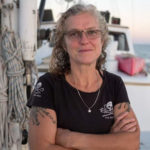 Sheila Hanney is a British free diver and vegan chef living in Dahab, on the Red Sea coast in Egypt where she runs the first vegan restaurant in the Sinai..
Sheila Hanney is a British free diver and vegan chef living in Dahab, on the Red Sea coast in Egypt where she runs the first vegan restaurant in the Sinai..
In the last three years she has spent a total of one year at sea volunteering with Sea Shepherd Conservation Society, the world’s most effective defender of ocean habitats.
She is an amazing vegan chef and runs a camp and restaurant by the Red Sea in Dahab, Egypt. (We have spent a lot of time there – it’s fantastic). She not an official representative of Sea Shepherd, but has been crew and has witnessed first hand the destruction of our blue planet.
She also believes through lifestyle changes that there is still hope to save our environment.
Below is an exclusive, sad and exciting extract from the book she is writing as a Sea Shepherd crew member and vegan chef.
You can also see an incredible video…
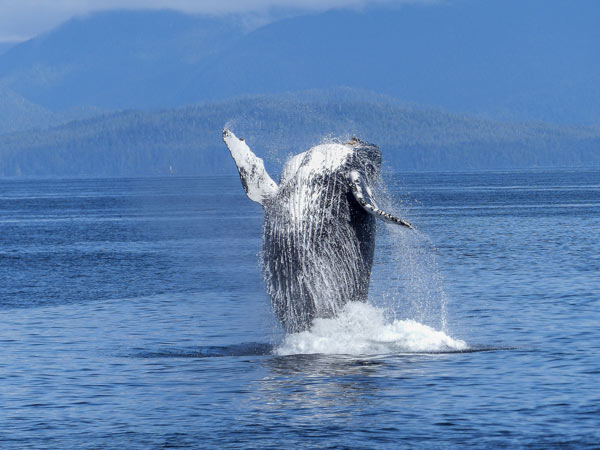
By Catch
Dolphins, turtles, sharks, whales, rays, all the pretty ones, all the bucket list I want to swim with ones, the loveable sea creatures dying in agony as by catch. Killed to feed the humans who still believe that fish is a healthy source of protein, millions of creatures are caught, thrown back in dead or dying, often ground up and fed to land animals in factories, and used as fish food to fatten up imprisoned salmon.
It’s beyond crazy, the super mechanisation of fishing, the drones, helicopters and radar fish finders are robotically accurate at hunting, the nightmarish machines grab what’s left of the oceans life, strangle it in huge plastic nets and raise it suffocating in to the air on to the continuously roaming killer ships, crewed by modern day slaves, relentlessly pulling in huge amounts of toxic fish that the humans think they need.
All the pretty ones get caught as well, the instagrammable animals that people want to take selfies with, all killed so humans can have protein which is so readily available from other sources.
The first humpback whale I ever met was dying in a fishing net, I was onboard the MV Farley Mowat in 2016 and we got a call from the RV Martin Sheen that a whale had been spotted repeatedly surfacing in the same spot for over an hour, we raced over at our full 33 knots, as we closed in myself and the other two divers onboard got equipment ready to jump in.

Our captain radioed whale experts and we were ordered not to enter the water as the whale was tangled up in a net and would be stressed and potentially dangerous to get near. It was an agonisingly long wait on the foredeck, counting the intervals between the whale surfacing and diving, trapped in the lethal net, the whale’s huge majestic strength was being cruelly tested. Our crewed up small trolling battery powered boats carrying cutting tools went closer in and the Mexican navy appeared with two fast boats.
Four small boats and our two ships encircled the whale, the blows when they came were so loud, distressed, all our crew stayed on tenter hooks praying the whale would live, the whale eventually tired and stayed more time on the surface, allowing the crews to cut away the vicious mesh of net.
Our media were recording everything so we could show the world the devastation caused by these nets. I ended up in one of our small boats as our crew rotated it’s duties, I leaned over and cut one of the thick nylon ropes wrapped around the whale’s head, she dove and finally swam away fast from all the noise of the boat engines, the exhausting rescue was over she was free again.
That campaign we freed one whale but found at least four more dead ones, floating or beached with scars showing that the nets had killed them. It’s hard on your soul to witness this but it drives me harder to change and convince people that the only place we really need fish is in our oceans.
I believe that we like to imagine “line caught fish” is one guy on a little boat reeling in his supper, the reality is frightening, long lines up to 50 miles in length ensnaring every species above and below the water, gulls, albatross, sharks and more of the pretty ones. Discarded and lost fishing gear keeps catching and killing all the pretty ones, ghost nets and long lines make up around half of all plastic ocean pollution. To me all fish are pretty ones, beautiful graceful creatures, they glide effortlessly through the water, super synchronised in their extended family shoals.
From humpbacks to tiny crabs they are all worthy of our protection. Their lives are literally our lives.
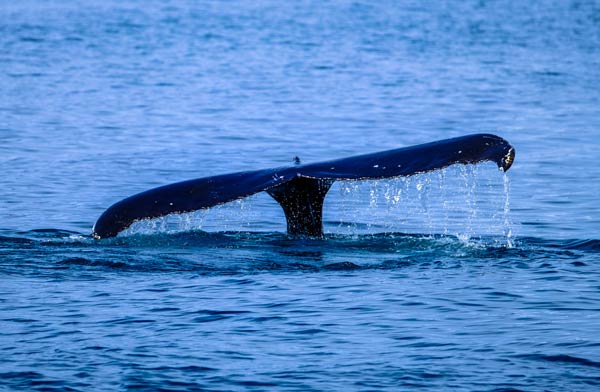
You have to admire and respect the work of Sea Shepherd. Brighton Energy Co-op salutes the women and men involved in this vital work. Check out the videos below:
The Sea Shepherd crew rescued a whale entangled in an illegal totoaba gillnet in the Gulf of California. It was heartbreaking to see this whale entangled in a net, but we managed to save it and after 4 hours of hard work, the whale swam free!
Join #GenerationSea to ramp up marine environment protection here in the UK.
SAS (Surfers Against Sewage) are pushing for a bold new Environment Bill that will protect our precious seas and oceans.
They need people to sign their petition to ensure their voice is heard loud and clear in parliament. SAS audited single use plastics in parliamentary buildings in 2017 during their #PlasticFreeParliament campaign which resulted in 5 disposable plastic items being chosen for removal or replacement with a sustainable alternative, like plastic cutlery to wooden cutlery etc.
Now SAS need your signature on their petition to ensure the government continues to listen to their advice.
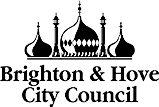
INVEST IN A CLEAN GREEN BRIGHTON
Brighton Energy Coop is a Brighton and Hove City Council approved contractor to roll out FREE SolarPV on local schools.
Invest from as little as £300 and earn 5% return on your investment.
Help us put FREE SolarPV on 9 more Brighton and Hove schools.

Related Articles
Four BEC Solar Projects at Shoreham Port – the EcoPort!
That's 8 Community Energy Systems! Oct 2023 saw BEC install a further 120kW of community owned #solar on four buildings at our long time partners Shoreham Port. Shiny new solar panels can now be seen on their HQ Nautilus House, Maritime House Warehouse, Maritime...
33 Sussex Businesses Receive EU funded Solar Grant from BEC
LAST OF EU SOLAR FUNDING HELPS SUSSEX BUSINESSES DURING ENERGY CRISISCommunity Solar Accelerator was a grant scheme run by Brighton Energy Co-op between 2021-2023. It was funded by the EU’s European Regional Development Fund. The grant provided match-funding to...
Brighton Energy Winter Solar News 2023
Summer Buzzed With Our Solar Projects, BBQ & Film Screening In this issue... BEC raises £700k in 1 month Our new solar projects kick off with Cardinal Newman Catholic School We wrap up our EU-funded Solar Grant scheme; 33 businesses received funds We host ‘The...



